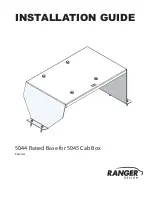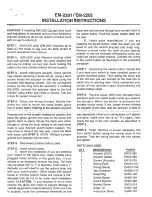
Never exceed the maximum permissible tire
inflation pressure. Always observe the
recommended tire pressure for your vehicle
when adjusting the tire pressure
(
i
The actual values for tires are vehicle-
specific and may deviate from the values in
the illustration.
Checking the tire pressures
Important safety notes
Observe the notes on tire pressure
(
Information on air pressure for the tires on
your vehicle can be found:
R
on the vehicle's Tire and Loading
Information placard loading information
table on the B-pillar (
R
on the tire pressure label on the fuel filler
flap
R
in the "Tire pressure" section
R
Checking tire pressures manually
To determine and set the correct tire
pressure, proceed as follows:
X
Remove the valve cap of the tire that is to
be checked.
X
Press the tire pressure gauge securely onto
the valve.
X
Read the tire pressure and compare it with
the recommended value on the Tire and
Loading Information placard (
X
If the tire pressure is too low, increase it to
the recommended value.
X
If the tire pressure is too high, release air
by pressing down the metal pin in the valve.
Use the tip of a pen, for example. Then,
check the tire pressure again using the tire
pressure gauge.
X
Screw the valve cap onto the valve.
X
Repeat these steps for the other tires.
Tire pressure loss warning system
(Canada only)
Important safety notes
While the vehicle is in motion, the tire
pressure loss warning system monitors the
set tire pressure using the rotational speed of
the wheels. This enables the system to detect
significant pressure loss in a tire. If the speed
of rotation of a wheel changes as a result of
a loss of pressure, a corresponding warning
message will appear in the multifunction
display.
The tire pressure warning system does not
warn you of an incorrectly set tire pressure.
Observe the notes on the recommended tire
pressure (
The tire pressure loss warning system does
not replace the need to regularly check your
vehicle's tire pressures, since an even loss of
pressure on several tires at the same time
cannot be detected by the tire pressure loss
warning system.
The tire pressure monitor is not able to warn
you of a sudden loss of pressure, e.g. if the
tire is penetrated by a foreign object. In the
event of a sudden loss of pressure, bring the
vehicle to a halt by braking carefully. Avoid
abrupt steering maneuvers.
The function of the tire pressure loss warning
system is limited or delayed if:
R
snow chains are mounted to your vehicle's
tires.
R
road conditions are wintry.
R
you are driving on sand or gravel.
R
you adopt a very sporty driving style
(cornering at high speeds or driving with
high rates of acceleration).
R
you are towing a very heavy or large trailer.
R
you are driving with a heavy load (in the
vehicle or on the roof).
Tire pressure
401
Wheels and tires
Z
Summary of Contents for 2013 GL X166
Page 1: ...GL Operator s Manual Nur f r internen Gebrauch For internal use only...
Page 4: ......
Page 32: ...30...
Page 80: ...78...
Page 158: ...156...
Page 331: ...Useful information 330 Stowage areas 330 Features 338 329 Stowage and features...
Page 360: ...358...
Page 376: ...374...
Page 432: ...430...
Page 446: ...444...
















































